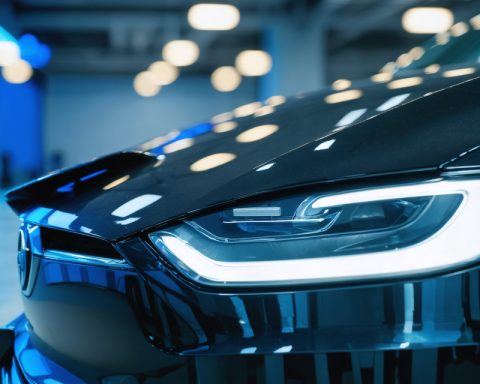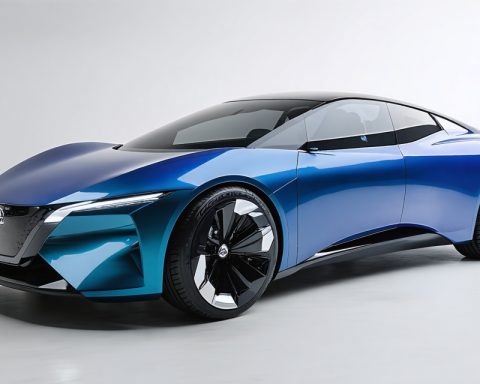In a groundbreaking development, Bollinger Motors, which operates under Mullen Automotive Inc., has made waves by delivering its first batch of 2025 Bollinger B4 chassis cab electric trucks to the West Coast. These fully electric trucks have been dispatched to TEC Equipment locations in Lacey, Washington; Fontana, California; and Oakland, California, marking a significant achievement for the company as they roll out their innovative vehicles in this vital regional market.
The Bollinger B4, an all-electric Class 4 truck, stands out with its state-of-the-art chassis design—a product of intensive collaboration with fleets and upfitters. This innovative engineering protects the sizable 158-kWh battery pack and crucial components, prioritizing performance and safety. With a retail value close to $500,000, these first deliveries signal the beginning of Bollinger’s revenues being accounted for in Mullen’s fiscal quarter ending December 2024.
On a promising note for environmentally conscious buyers, the Bollinger B4 qualifies for a $40,000 federal clean vehicle tax credit. Moreover, additional state incentives can boost savings to over $100,000, making these electric trucks not just a sustainable but also a financially savvy choice for businesses.
TEC Equipment, a stalwart in the trucking industry since 1976, is instrumental in this venture. With headquarters in Portland, Oregon, and over 30 branches in eight states, the dealership provides comprehensive services, including sales, leasing, and ZEV consulting. Their collaboration with Bollinger Motors paves the way for expanded reach and innovation in commercial electric trucking across the West Coast.
The Electrifying Revolution: How Bollinger’s Electric Trucks Are Transforming Transport
In the rapidly evolving landscape of the automotive industry, Bollinger Motors’ recent milestone ushers in a new era for electric commercial vehicles. While the colossal introduction of their B4 electric trucks on the West Coast is grabbing headlines, the story runs deeper than a mere rollout. This shift towards sustainable transport holds substantial implications for individuals, communities, and entire nations.
Transformative Impact on the Transportation Sector
The deployment of electric trucks such as the Bollinger B4 represents a pivotal change in the logistics and transportation sectors. The traditional reliance on diesel-powered trucks has not only provoked environmental concerns due to high emissions but also created economic dependencies on fossil fuels. Transitioning to electric solutions could decrease oil dependency and pave the way for a cleaner, more sustainable future.
However, this change comes with its own set of challenges. The adaptation of electric trucks necessitates a reevaluation of existing infrastructure. Charging stations need strategic installation across major transportation routes to accommodate the increased demand from electric haulers. This infrastructure update, albeit costly, offers long-term advantages like reduced fuel expenses and maintenance costs.
Controversies and Challenges in Electrifying the Fleet
While the move toward electric trucks is promising, it is also steeped in controversy. The high initial cost of electric trucks, with the Bollinger B4 nearing a retail price of $500,000, can be prohibitive for small businesses despite the attractive federal and state incentives. These incentives sometimes face political backlash, with critics questioning the fairness of allocating taxpayer dollars to subsidize commercial purchases.
Moreover, the transition phase might result in economic disruptions for communities heavily dependent on traditional trucking industries. Reskilling programs will be crucial to ensuring that the workforce adapts smoothly to new technologies.
Advantages and Disadvantages: A Balanced Perspective
The advantages of electric trucks like the Bollinger B4 are tangible and significant. Reduced greenhouse gas emissions lead to better air quality, impacting public health positively. Businesses can benefit from lower operating costs in the long run, despite the hefty upfront investment. These vehicles also operate more quietly, reducing noise pollution in urban environments.
However, the limitations cannot be ignored. The current electric truck range is a concern for long-haul transportation, where refueling speed and station availability are critical. The manufacturing process of electric vehicles also requires rare minerals, often raising ethical and environmental issues regarding their extraction.
How This Affects People and Communities: A Vision of the Future
As electric trucks become more prevalent, individual consumers may also see changes in their daily lives. Cleaner air and quieter streets could become the norm in urban areas, improving quality of life. Communities could witness a rebound in manufacturing sectors focusing on electric vehicle production and maintenance.
Nations pursuing ambitious carbon-neutral goals are likely to support such initiatives more robustly. The positive environmental footprint of electric trucks aligns with global sustainability targets and international climate agreements, creating potential diplomatic and trade advantages.
The future of transportation is undoubtedly electric, and companies like Bollinger Motors are at the helm of this revolution. For more developments in cutting-edge electric vehicles, visit Tesla or Rivian to explore exciting innovations in this dynamic field.







